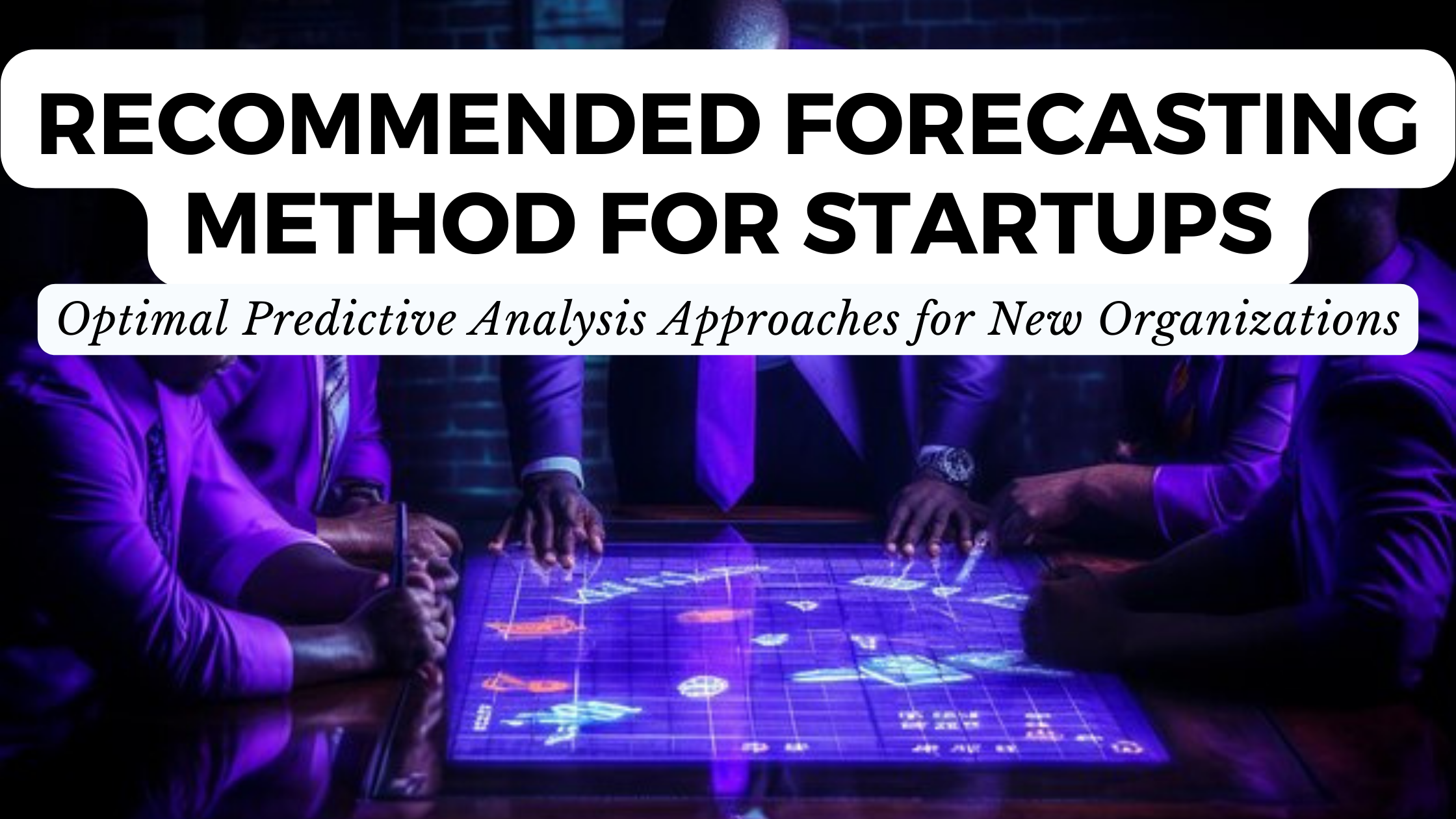Recommended Forecasting Method for Startups: Optimal Predictive Analysis Approaches for New Organizations


Recommended Forecasting Method for Startups: Optimal Predictive Analysis Approaches for New Organizations
Embarking on a startup journey involves navigating uncertainties, and strategic planning is paramount for success. In this extensive guide, we explore the recommended forecasting methods for startups, offering insights into optimal predictive analysis approaches tailored for new organizations. Additionally, we present a curated selection of SaaS products designed to empower startups in their forecasting endeavors.
Understanding the Startup Forecasting Landscape
Startups face unique challenges, and choosing the right forecasting method is crucial for informed decision-making. Let’s delve into the forecasting methods that prove most beneficial for new organizations.
1. Time Series Analysis with Forecasting Software:
Utilizing time series analysis, startups can leverage historical data to predict future trends. Forecasting software like Prophet by Facebook provides a user-friendly platform for time series forecasting. Its adaptability to irregularities in data, such as holidays and seasonality, makes it a valuable tool for startups aiming for accuracy in predictions.
2. Monte Carlo Simulation:
Startups dealing with intricate uncertainties can turn to the Monte Carlo simulation method. Oracle Crystal Ball is a SaaS product that facilitates Monte Carlo simulations, enabling startups to model different possible outcomes. This approach is particularly valuable when dealing with complex variables and diverse scenarios.
3. Predictive Analytics with Machine Learning:
Machine learning-driven predictive analytics can significantly enhance forecasting accuracy. DataRobot is an AI-driven platform that empowers startups to build and deploy machine learning models for predictive analysis. By leveraging algorithms, startups can extract valuable insights from their data, aiding in better decision-making.
4. Scenario Analysis:
Sisense is a versatile SaaS product that facilitates scenario analysis for startups. By exploring different hypothetical scenarios, startups can identify potential risks and opportunities. Sisense empowers startups to visualize data and gain actionable insights, fostering a proactive approach to planning.
5. Ensemble Forecasting:
Startups seeking a comprehensive forecasting approach can opt for ensemble forecasting, combining multiple models for enhanced accuracy. RapidMiner is a platform that supports ensemble modeling, allowing startups to blend various forecasting methods. Its user-friendly interface and robust analytics capabilities make it an asset for startups exploring diverse forecasting avenues.
Conclusion
In conclusion, the choice of forecasting method significantly influences a startup’s ability to navigate uncertainties and make informed decisions. Time series analysis, Monte Carlo simulation, predictive analytics, scenario analysis, and ensemble forecasting stand out as optimal approaches for startups seeking to harness the power of predictive analysis.
As startups embark on their forecasting endeavors, Subscribed.FYI emerges as a valuable resource. Our platform simplifies the process of understanding, comparing, and managing your SaaS stack, offering a plethora of benefits for startups of all sizes.
Unlock exclusive Subscribed.FYI Deals to enjoy substantial savings on a diverse array of SaaS tools. From subscription management to insightful comparisons, Subscribed.FYI is your gateway to making informed decisions about your software applications.
Sign up for free today and take control of your subscriptions, effortlessly tracking expenses while enjoying the perks of substantial savings.








